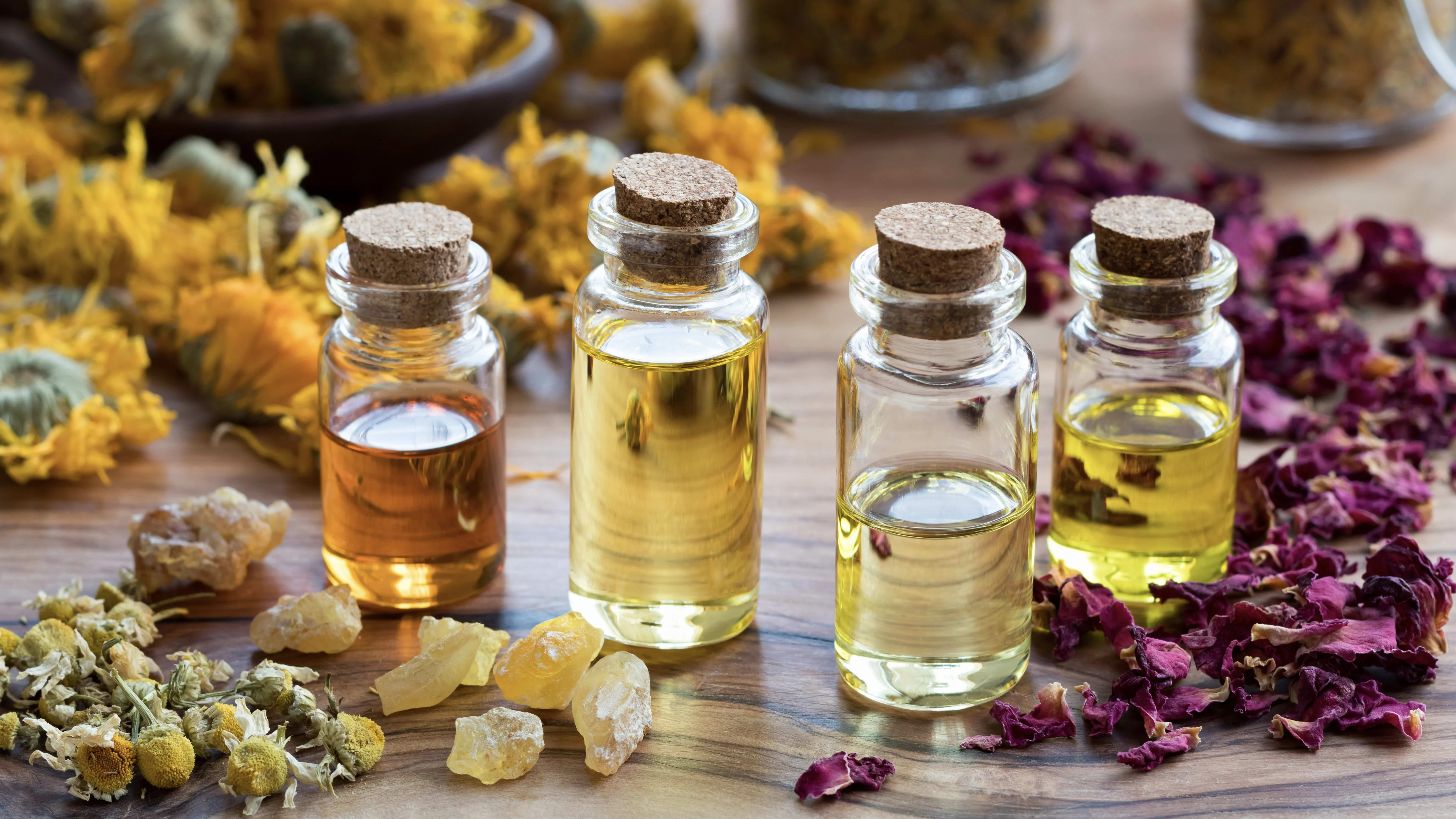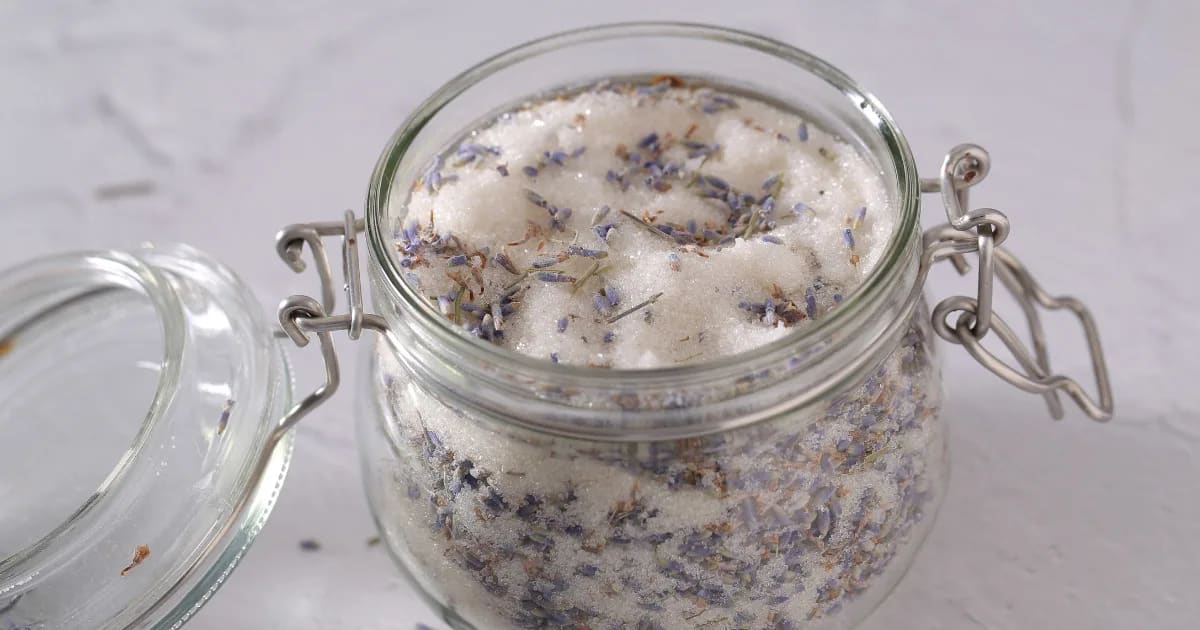Clean the Shower with Tea Tree Oil A DIY Spray Recipe

Ward off germs & fungi: clean the shower with Tea Tree oil!
This post shows you how to clean the shower with Tea Tree oil, using it in a DIY alcohol-based spray recipe.
Bathroom surfaces are constantly exposed to both germs and moisture—meaning mold and mildew are more likely to grow. (Not very reassuring in a room where we're supposed to get clean and healthy!)
But as much as I don't want to be exposed to germs in my bathroom, I also don't want to be surrounded by harmful chemicals. I'd like to protect my skin from irritating substances, and I don't want to breathe them in and potentially experience all the negative health issues associated with harsh cleaners.
Tea Tree essential oil makes cleaning the shower simple!
Clean the shower with Tea Tree oil!
Tea Tree oil contains terpinen-4-ol.
Terpinen-4-ol: A monoterpenol molecule that
helps reduce the presence of a variety of
microbes, including bacteria, viruses, and fungi.
That's why Tea Tree is one of the most popular essential oils in the world for natural cleaning.
This recipe is a shower cleaner that you can spray all over your tub, tile, and shower curtain after you turn off the water. The alcohol content disinfects, while Tea Tree and Atlas Cedarwood oil contribute their own cleansing powers to continue to discourage germs and fungi. (You'll learn more about Atlas Cedarwood below!)
Cedar & Tea Tree Shower Spray
3 oz (90 ml) water
1 oz (30 ml) 190 proof alcohol (such as Everclear)
30 drops Atlas Cedarwood essential oil (Cedrus atlantica)
30 drops Tea Tree essential oil (Melaleuca alternifolia)
Directions
Make this blend in a 4 oz (120 ml) spray bottle.
Pour the alcohol into the spray bottle.
Add the essential oils.
Allow this blend to sit for about an hour. This will give the strong alcohol time to fully disperse the essential oils before you add the water.
Add the water.
Close the bottle up and shake well.
The last step is to spray your shower stall! Use it after every shower to discourage germs and mold from accumulating.

Atlas Cedarwood essential oil
Atlas Cedarwood oil is distilled from the wood of trees in the Atlas Mountains of Morocco.
It's rich in a combination of rare sesquiterpenes that aren't found in many other oils.
Atlas Cedarwood has a warm, woodsy, sweet aroma. For some, the aroma is typically “cedar.” For others (who associate the scent of “cedar” more with Juniperus virginiana), Atlas Cedarwood smells like another type of wood, such as oak. Either way, it's a gorgeous aroma that inspires feelings of relaxation and security. It blends beautifully with Tea Tree's slightly medicinal scent.
Atlas Cedarwood is often used in natural cleaning blends, and is especially helpful during cold and flu season. As it reduces the presence of germs, it can help support your respiratory health.
Clean the rest of the bathroom with essential oils!
Now that your shower is clean . . . what about the rest of the bathroom?
You can actually use your shower cleaner on other surfaces, such as the countertop (and even the toilet).
If you'd like an additional blend for the other surfaces, try this Hemlock Essential Oil Natural Cleaning Spray. It's made with castile soap and water (it's alcohol-free).
** NOTE: Atlas Cedarwood (Cedrus atlantica) is on the endangered list. It's a good idea to ask your supplier how their oil is sourced and produced. Aromatics International gets their Cedrus atlantica from a plantation that uses sustainable practices, so the wood isn't taken from the wild. (Just like Sandalwood, there are plantations that grow Cedrus atlantica with fully sustainable harvesting methods.) It's exciting to see this type of conservation and sustainability making a positive impact! We can also suggest using Juniperus virginiana instead of Cedrus atlantica.
Ready to learn more about the therapeutic properties of essential oils? Aromatherapy 101 is for you!
Whether you are brand new to aromatherapy or looking to expand your knowledge with science-based information you can trust, our introduction course is the perfect place to begin.
REFERENCES
Astani, A., Reichling, J. and Schnitzler, P. (2010) Comparative study on the antiviral activity of selected monoterpenes derived from essential oils. Phytotherapy Research 24, 5, 673-679
Enshaieh, S., Jooya, A., Siadat, A.H. and Iraji, F. (2007) The efficacy of 5% topical tea tree oil gel in mild to moderate acne vulgaris: a randomized, double-blind, placebo-controlled study. Indian Journal of Dermatology, Venereology and Leprosy 73, 1, 22-25
Ramage, G., Milligan, S., Lappin, D.F., Sherry, L., Sweeney, P., Williams, C., Bagg, J. and Culshaw, S. (2012) Antifungal, cytotoxic, and immunomodulatory properties of tea tree oil and its derivative components: potential role in management of oral candidosis in cancer patients. Frontiers in Microbiology 3, 220, doi: 10.3389/fmicb.2012.00220. eCollection 2012





